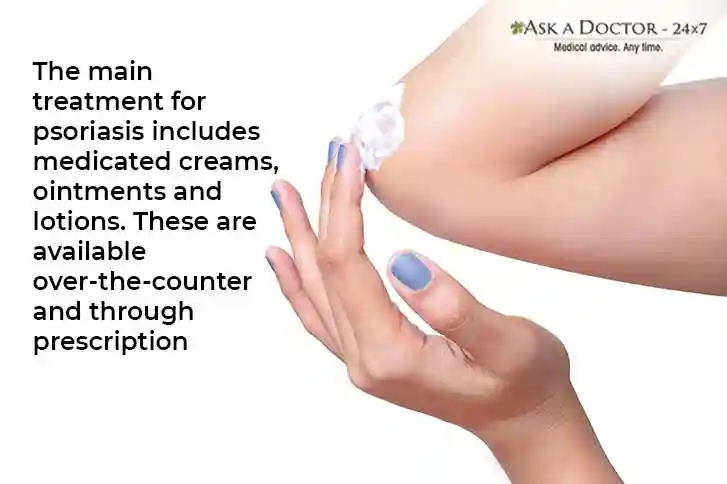How To Tell If Your Rash Is Actually Psoriasis? Learn The Ways To Treat It Naturally!
Troubled with a red, scaly, itchy rash/patches on your skin that just doesn't go away? It can be either eczema or psoriasis! Yes, you read it right! both these conditions show similar symptoms but they are treated differently. If you're wondering how to tell whether the rashes on your skin is actually psoriasis or eczema, continue reading to explore some distinguishing factors that put them apart.
Psoriasis is a skin condition in which you develop scaly patches on your skin. These patches are red, thick, crusty, and flaky and they usually occur in adults, but it can also affect children. Males and females are affected equally by this condition.
This condition occurs when your body makes skin cells at a very fast pace. This causes cells to accumulate on the skin surface, which appears as thick, scaly patches.
What are the symptoms of psoriasis?
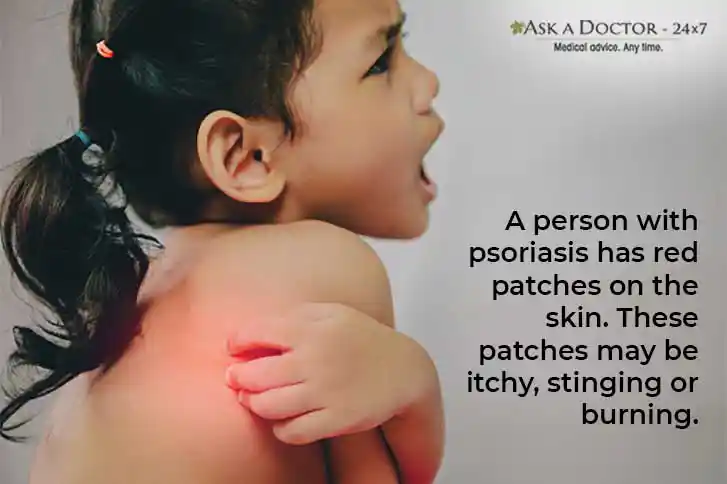
There are several types of psoriasis. The most common type, which occurs in 80-90% of cases, is plaque psoriasis. It may occur suddenly or slowly and in many cases, it comes and goes away.
Psoriasis causes dry, red patches on the skin covered with silvery scales. These patches are known as plaques. This can occur anywhere in the body. However, the most affected body areas are the elbows, knees, scalp, face, palms, lower back, and soles of the feet. Some people also complain of pain, itching, burning, or swelling.
Psoriasis may also affect other systems of your body.
Psoriatic arthritis
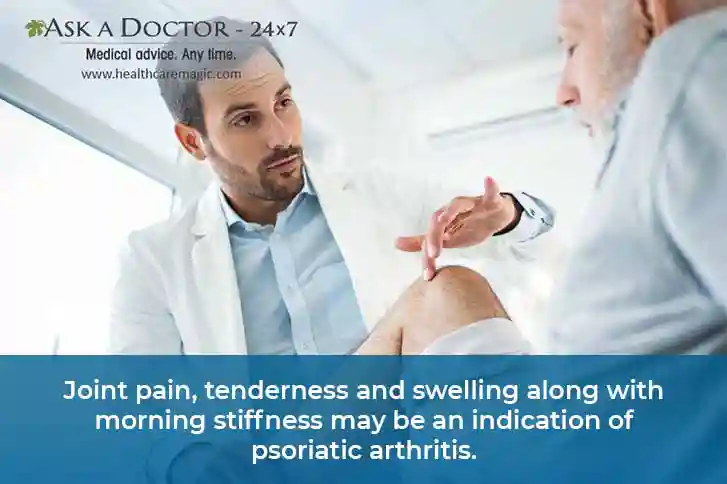
Severe and ongoing psoriasis affects your joints and causes psoriatic arthritis. You may have:
- Pain, tenderness, and swelling in joints, especially in fingers and toes
- Morning stiffness which goes away during the day
- Pain in the heel and lower back
Nail psoriasis
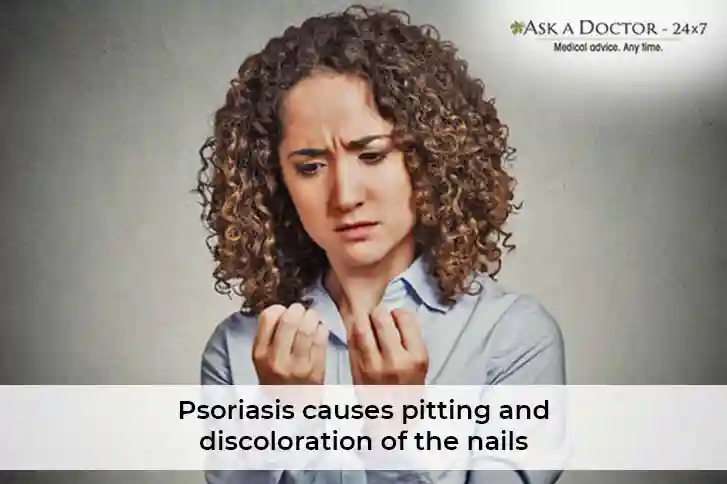
Psoriasis affects the nails of around 50% of people. This includes:
- Pitting of nails
- Separation of nails from the nail bed
- White, yellow, or brown colored nails
- Rough nails
Diagnosing psoriasis

If you feel any rash or abnormal sensation in your skin, you should contact a dermatologist. The dermatologist will diagnose the condition based on the appearance of your skin. Your dermatologist will also examine your nails and joints to identify the condition.
Sometimes it becomes challenging to identify if your rash is due to psoriasis or eczema, another skin condition in which the patches of skin turn itchy, red, and inflamed. It is recommended to seek medical advice if you see any rash on your body.
- The itch associated with eczema is so intense that it often interrupts sleep; however, there may be mild itching in psoriasis. People with psoriasis usually complain of burning or stinging sensation.
- Eczema usually occurs inside the folds of elbows and knees. It can also appear on the arms, hands and, feet. The most affected body areas in psoriasis are elbows, knees, scalp, face, palms, lower back, and soles of feet.
- Rashes in eczema are red and inflamed and may be swollen, oozing, scaly or crusty. The patches appear rough and leathery. Rashes in psoriasis appear raised, silvery and scaly. The skin in psoriasis is thicker than it is in eczema.
Treating psoriasis
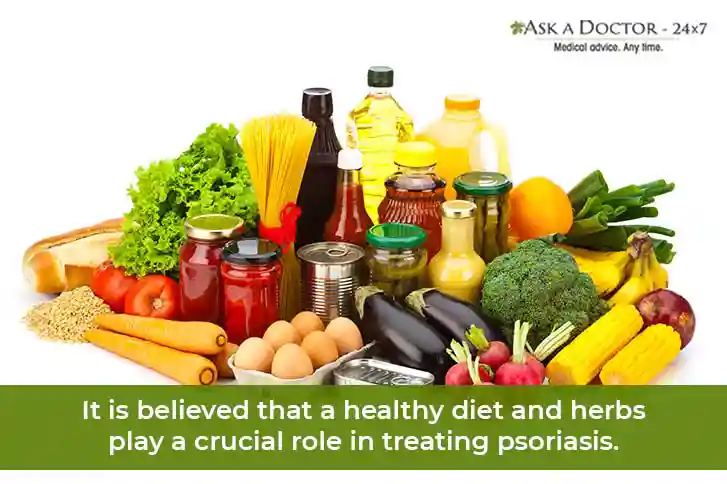
Many creams, ointments, lotions, and tablets are available over-the-counter and through prescription in the market to cure psoriasis. A dermatologist will create an individualized treatment plan for psoriasis based on the type, location of patches, and severity of the condition. Other medical conditions that a person has are also taken into consideration.
Your doctor may recommend therapy considering your specific requirement
1. Alternative therapies
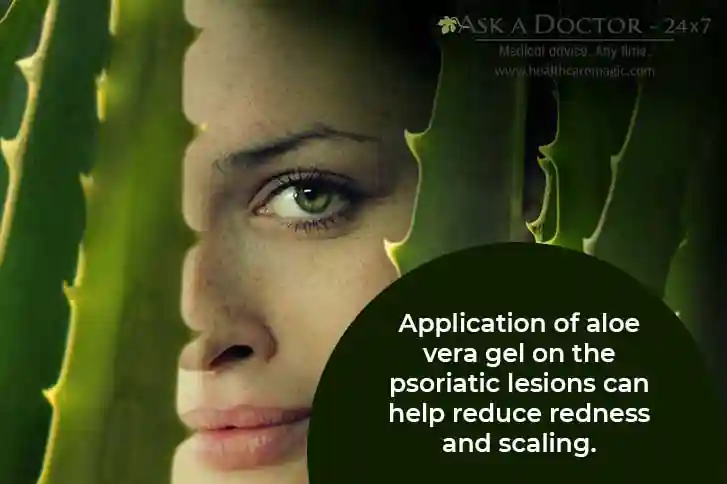
It is said that adopting natural remedies such as a balanced diet, herbs, supplements, and mind-body therapies may help treat psoriatic symptoms. However, much of the evidence supporting these complementary and alternative therapies is unreliable.
2. Diet and nutrition
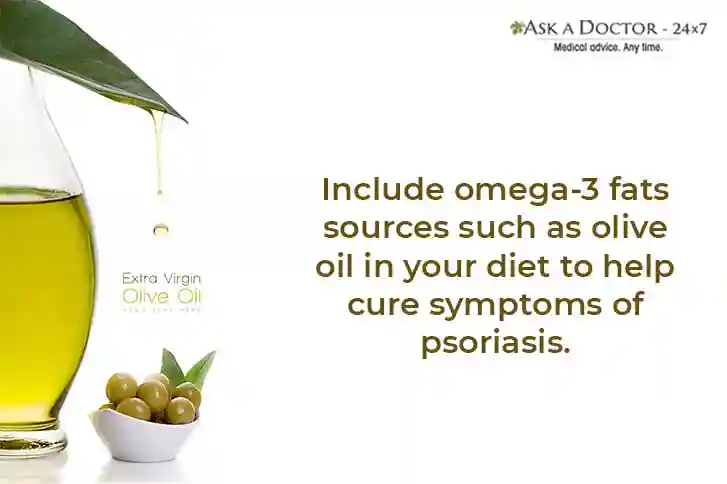
You are what you eat. Dietitians recommend making the following changes in your diet to cure the symptoms:
- Reduce calorie intake if you are overweight.
- Limit intake of sugar, animal fats, meat, and alcohol.
- Include omega-3 fat sources such as olive oil, fish oil and cold water fish in your diet.
- Eliminate food sources that contain gluten if you are gluten-sensitive.
- Increase the intake of dietary fiber such as psyllium, pectin, guar gum, etc.
Some doctors suggest including multivitamin supplements in the diet.
3. Mind-body therapy
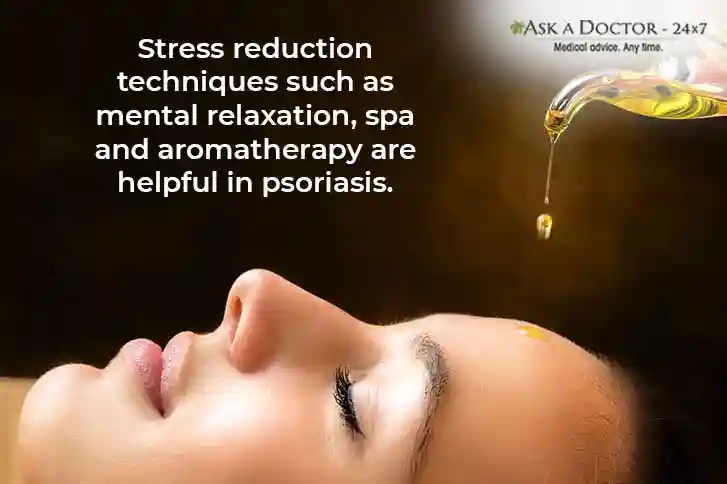
It is important to reduce stress levels to cure any ailment. Using mind and body therapies such as relaxation techniques, yoga, spa, and aromatherapy may help control psoriasis.
4. Herbal remedies
It is advisable to consult your doctor before adopting any therapy. A treatment useful for you may have adverse effects on another person. Some herbs can interact with your medicines and cause serious complications.
Special care is required for those who are pregnant, breastfeeding or have pre-existing medical conditions.
In case you want to know about psoarosis amd other related skin conditions, you can consult a Dermatologist online.
Ask a Specialist
Recent Questions

